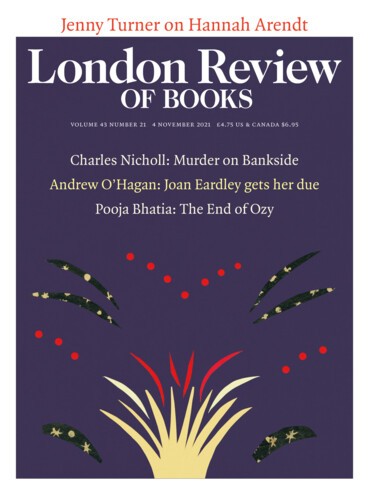Short Cuts: Asian America
E. Tammy Kim, 4 November 2021
‘Asian American’, much like ‘Black’, ‘Native American’ or ‘Latino’, is a synthetic category – an attempt to describe life in a messy multicultural society. It was first used in 1968 by Yuji Ichioka, a Japanese-American activist and postgraduate student at Berkeley, in the context of Third World resistance to the Vietnam War. Just three years earlier, the US had reformed its immigration laws to admit people from countries outside Western Europe. As a result, the US population is now 18.5 per cent Latino, 13 per cent Black and 6 per cent Asian. More than a tenth of US residents were born in another country. ‘Asian American’ is no longer the anti-racist, post-colonial signifier Ichioka and his fellow internationalists imagined: the term is vague enough to encompass Taiwanese Trump voters, Hindutva Desis, Cambodian refugees and Singaporean billionaires.


